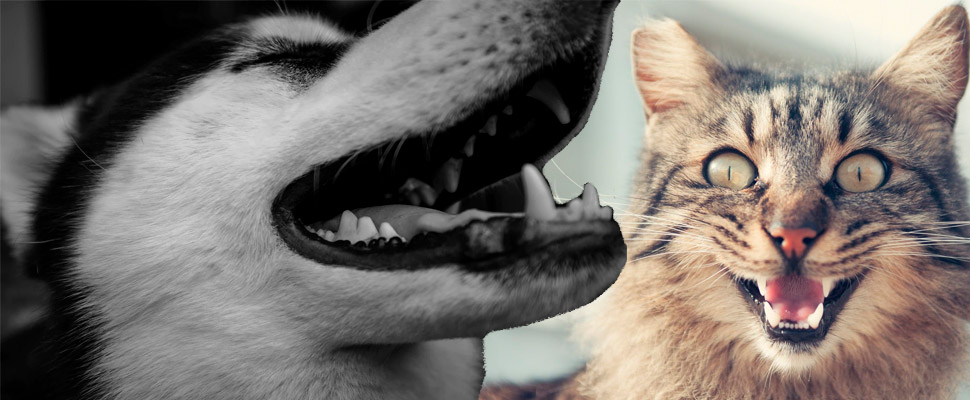Do you know what periodontal disease in dogs and cats is?
Listen this article
Does your pet have bad breath? It is probably suffering from periodontitis. In LatinAmerican Post we tell you about this disease so you can prevent it

Periodontal disease is very common in small animals, especially in dogs and cats. According to the page of canine food Greenies, it is a disease that "is produced by the accumulation of dental plaque and tartar on the teeth."
Leer en español: ¿Sabes qué es la enfermedad periodontal en perros y gatos?
Although in the beginning, the presence of bacteria is normal in any species, even in humans, the excess of these can produce an infection in the gums, which leads to bone loss, weakening the teeth even causing fall in some serious cases. Bacteria accumulate in the margin between the teeth and the gums, which causes the bacteria to reduce them.
According to Juanita Beltrán, a veterinarian at the National University of Colombia, dogs tend to suffer from oral diseases, with periodontitis being the most common: "in dogs, at least 70-80% of the cases they consult have some periodontal disease, and in cats, it's roughly 50-60%. "
The first phases of the disease only cause swelling in the gums, which can be noticed because they become red in some parts, due to the accumulation of tartar. At this point, with regular treatment of teeth washing and prophylaxis can periodically be stopped. But the line in which it is already irreversible is fragile and, although it can be treated, it can not be prevented. And in cases when the disease is more developed, it may be necessary to remove the teeth, or they may even fall on their own.
One of the first consequences of this disease is that the pet does not want to feed by pain in their teeth and gums. This, according to Beltrán, is more common in cats, who can stop eating even when the disease is mild. Dogs, meanwhile, will stop eating when the disease is already very advanced.
The above is the most common, but the truth is that periodontitis can lead to much more serious diseases, starting with some damage to health by not eating. Excess bacteria can also create nasal abscesses, because of the closeness between the roots of the teeth and the nostrils. Also, bacteria can go through the blood, causing infection in it or compromising various organs such as the heart.
The most important thing is prevention
What can begin with a simple inflammation of the gums, can lead to severe periodontitis, having to remove the teeth or that they fall alone. Being so common, the best remedy for this disease is prevention.
The doctor Juanita Beltrán insists on washing teeth for pets. Although there is no greater culture about this, dog and cat owners should accustom their pet to brush their teeth. Although it will be complicated, because the animal will not be easily manipulated to clean the teeth, the key is to do it since they are puppies, so that they grow with that habit and after a while, they feel normal.
Read also: Everything you need to know about Alzheimer's in dogs
Here are some tips to keep in mind when washing your pet's teeth:
1. As we said before, the key is to accustom them from puppies so that tooth washing becomes routine
2. It is advisable to wash your teeth two to three times a week
3. Use special toothpaste for dogs, which you can get at vets or pet stores. It is essential that you do not use human cream, because it has fluoride and it hurts them. There are also treatments that work as a mouthwash to facilitate cleaning.
4. If every time you try to brush your teeth becomes an odyssey, you can get different accessories, such as toys, to help them clean their teeth when playing with them.
5. A proper diet is also key to preventing the disease. The concentrates, when bitten, also help to make a sweep in the teeth of excess bacteria.
Remember that one of the most common evidence of this disease, besides seeing the dirt accumulated in the teeth, is bad breath. If you notice that some of this is happening to your pet, consult the veterinarian.
LatinAmerican Post | Juliana Suárez
Copy edited by Vanesa López Romero





